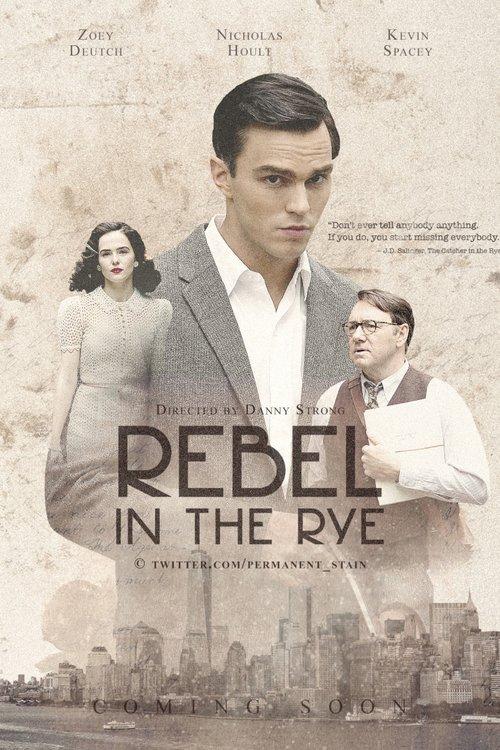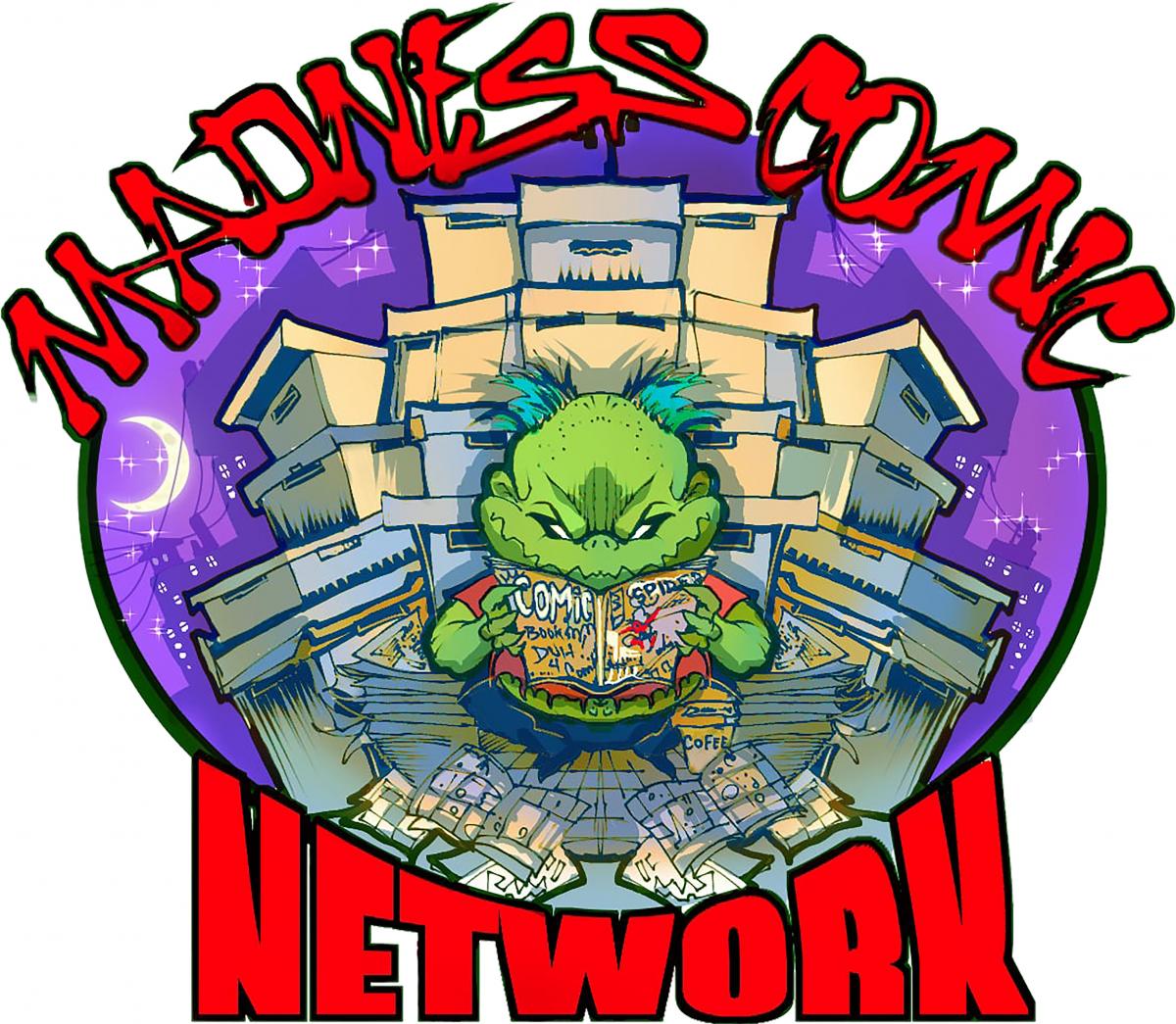REBEL IN THE RYE Does Little To Demystify J.D. Salinger
FTC Statement: Reviewers are frequently provided by the publisher/production company with a copy of the material being reviewed.The opinions published are solely those of the respective reviewers and may not reflect the opinions of CriticalBlast.com or its management.
As an Amazon Associate, we earn from qualifying purchases. (This is a legal requirement, as apparently some sites advertise for Amazon for free. Yes, that's sarcasm.)

J.D. Salinger is a name that almost instantly brings out strong reactions in people. Some boo and hiss, proclaiming his most famous work, “The Catcher in the Rye,” to be dangerous in some way and demand that it be banned from their children’s schools. Others smile and wax as poetic as they can muster, recalling their own first encounter with Holden Caulfield and how revelatory the story was in their youth. I belong to an unfortunate though fortunately very tiny segment of the population who has never read the book because I found out the term “catcher” in the title had nothing wto with baseball. No references to Mickey Cochrane, Gabby Hartnett, Ray Schalk, not even Campy or Yogi? Who needs it?
I’m an idiot, of course. It’s an American masterpiece. If you watch the new biographical film, REBEL IN THE RYE, you’ll hear it time and time again, just in case you don’t believe it already.
It’s a beautifully acted film. Nicholas Hoult, already known for his roles of The Beast in the X-Men franchise (following Kelsey Grammer) and Nux in MAD MAX: FURY ROAD, showed that he can handle a dramatic role extremely well too. He is asked to run the gamut, from serially sarcastic student to struggling—but learning—writer, to World War II soldier to post traumatic stress patient trying to cope with the horrors of combat and soon the horrors well. He portrays J.D. Salinger as likable but somewhat unstable, only ever at peace with his world when he is in absolute control of it. He’s buffeted by one of the most consistently fantastic actors of our time, Kevin Spacey, as Whit Burnett, young Salinger’s mentor and the first publisher to ever buy one of his stories. The classroom scenes reminded me a little of DEAD POET SOCIETY, not in the manic zaniness of the late, great Robin Williams but in the way this educator reached a student that other teachers and professors had failed to do. Other notable cast members include Sara Paulson as his editor, Dorothy Olding, Victor Garber as Sol Salinger, Hope Davis as Marie Salinger, Lucy Boynton as his second wife Claire Douglas, and Zoey Deutch as his first significant love, Oona O’Neill, who would eventually go on to marry Charlie Chaplin. Deutch, for those who aren’t aware, is the daughter of Lea Thompson.
The cast is marvelous, and the film as almost equally, well, marvelously unnecessary. To my thinking, J.D. Salinger would have hated it if he ever gave it the time of day. The man was intensely private. He loathed being a public figure. Director Danny Strong, making his directorial debut, is clearly a fan of Salinger’s work, and there’s nothing wrong with that. I just feel it’s a bit disingenuous to put together a film about a man who spent his life trying his damndest to not be the subject of a motion picture. He allowed MGM to adapt one of his stories, and the film was a total disaster, after which he turned everyone who tried to secure movie rights, including Hollywood heavyweights like Harvey Weinstein and Stephen Spielberg. There’s no law against creating a biographical film after someone’s death, certainly, but there’s nothing really revelatory here either. Many famous authors fought in World War II: Frank Herbert, L. Ron Hubbard, Norman Mailer, Frederik Pohl, Robert A. Heinlein, William Golding, Arthur C. Clarke, L. Sprague de Camp, and Kurt Vonnegut to name just a few. I’m not minimizing Salinger’s contribution; indeed, he stormed the beach at Normandy and that makes him a hero in my book.
It’s also a matter of public record. Anyone with internet access or even a reasonably recent set of encyclopedias could look up most of the information presented in REBEL IN THE RYE. His fallout with his friend and mentor, Whit Burnett, made both men feel a bit pathetic, with Burnett coming off desperate for a rub from Salinger’s fame and Salinger coming off as rather petulant, withholding any cooperation from Burnett out of spite for Burnett’s failure to get a promised anthology published. His search for religion, his poor relationships with his wives,, his strained relationship with his father—does knowing any of this make “The Catcher in the Rye” any better? Do Salinger’s shortcomings detract from your enjoyment of his work? I shouldn’t think so in either case. The problem is that REBEL IN THE RYE serves only as a love letter to Salinger, never delving into the writing itself but merely demonstrating his commitment to the craft above even social grace. Is that particularly rebellious? Rebellious would have been telling his old man to stick it if he didn’t like his chosen vocation, or finding some way to avoid going to D-Day, or never listening to editors or publishers when they’d like to suggest a few edits. I’m sure I’d bristle too at the thought of having to edit my own American Masterpiece to suit some suit in my publisher’s office, or those hacks in Hollywood that gutted his story way back when.
I guess, RECLUSE IN THE RYE just didn’t sound exciting enough. That’s a shame, because it would have been way more accurate. I will admit that I purchased a copy of “Catcher in the Rye” just a few weeks ago, and yes, I’m prepared to excuse the omission of Josh Gibson and Buck Ewing at long last. If this film encourages anyone to try Salinger’s stories that hasn’t already, then that’s a good thing. If you want a good baseball story featuring Salinger, you can always go with FIELD OF DREAMS but you’ll have to read the novel "Shoeless Joe" by W.P. Kinsella, because Hollywood took Salinger out of the script and made up James Earl Jones’ character Terrance Mann because they feared a lawsuit from Salinger. They were probably right, even though in Kinsella’s book the catcher wasn’t in the rye but in the corn. If you watch REBEL IN THE RYE because you’re dying to know more about the reclusive author than what his Wikipedia entry says, you might as well pull your red hunting cap down over your eyes now.


